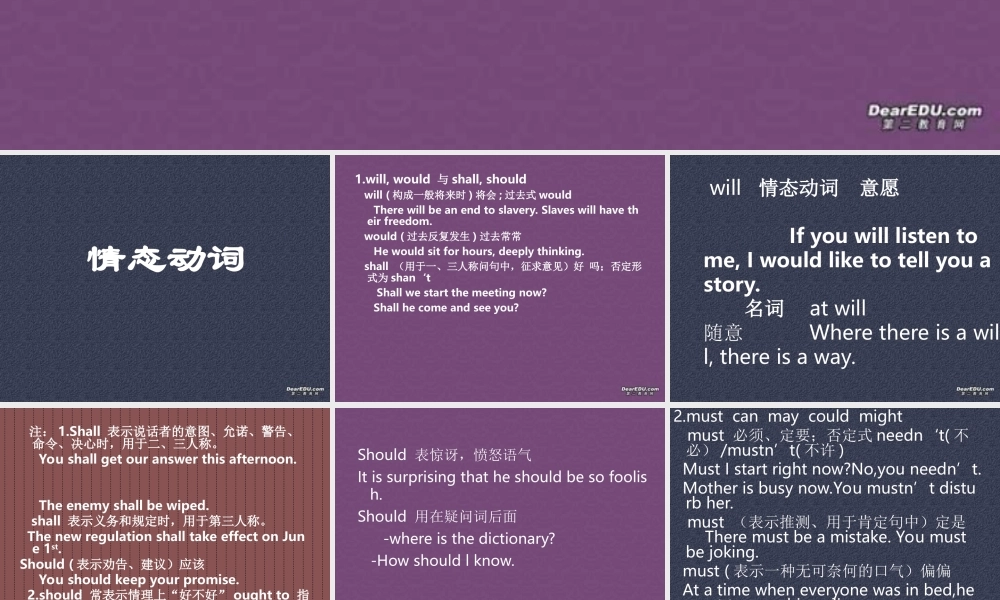情态动词与虚拟语气情态动词1.will, would 与 shall, should will ( 构成一般将来时 ) 将会 ; 过去式 would There will be an end to slavery. Slaves will have their freedom. would ( 过去反复发生 ) 过去常常 He would sit for hours, deeply thinking. shall (用于一、三人称问句中,征求意见)好 吗;否定形式为 shan‘t Shall we start the meeting now? Shall he come and see you? will 情态动词 意愿 If you will listen to me, I would like to tell you a story. 名词 at will随意 Where there is a will, there is a way. 注: 1.Shall 表示说话者的意图、允诺、警告、命令、决心时,用于二、三人称。 You shall get our answer this afternoon. The enemy shall be wiped. shall 表示义务和规定时,用于第三人称。 The new regulation shall take effect on June 1st.Should ( 表示劝告、建议)应该 You should keep your promise. 2.should 常表示情理上“好不好” ought to 指道义上有责任。Should 表惊讶,愤怒语气It is surprising that he should be so foolish.Should 用在疑问词后面 -where is the dictionary? -How should l know. 2.must can may could might must 必须、定要;否定式 needn‘t( 不必) /mustn’t( 不许 ) Must I start right now?No,you needn’t. Mother is busy now.You mustn’t disturb her. must (表示推测、用于肯定句中)定是 There must be a mistake. You must be joking. must ( 表示一种无可奈何的口气)偏偏 At a time when everyone was in bed,he must turn on his radio. Can ① (表示能力能会;过去式 could I can sing my ABC. ② (表示许可、请求,与 may同) ③ (表示推测,用于否定疑问句中)可能 Who can it be?It may be John.No,it can’t be him. could 语气上比 can 更委婉 Could you give me a hand ? Could I use your bike? Yes,you can.May ( 表示请求、许可)可以 ;否定为 can‘t( 不可以) /mustn’t ( 不许) M...




